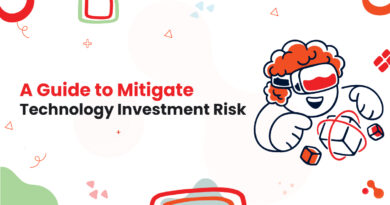How AWS WAF Helps Meet Compliance Requirements For Web Security?
In the rapidly evolving digital landscape, organizations are constantly challenged to maintain security while ensuring that their web applications comply with a myriad of industry regulations. From the healthcare sector’s HIPAA to the financial industry’s PCI DSS, compliance requirements have become a significant aspect of business operations. In this context, a robust security solution like the AWS Web Application Firewall (WAF) can help businesses meet these demands while securing their web applications against a variety of threats.
AWS WAF, a managed service provided by Amazon Web Services, offers powerful protection against common web exploits and allows businesses to enforce security rules that can help them meet regulatory compliance standards. This article delves into how AWS WAF can support organizations in adhering to compliance requirements for web security.
AWS Web Application Firewall (WAF)
AWS Web Application Firewall is a cloud-native service designed to protect web applications from common web exploits that could compromise their availability, and security, or consume excessive resources. It allows businesses to define custom rules that control the traffic coming to their web applications, blocking malicious requests based on IP addresses, HTTP headers, and other characteristics.
AWS WAF also provides several pre-configured security rules that align with industry best practices, making it an effective tool for meeting compliance standards. These features, when used correctly, can help organizations fulfill many of the security requirements outlined by regulatory frameworks like GDPR, HIPAA, and PCI DSS.

Key Compliance Requirements For Web Security
Compliance requirements for web security vary depending on the industry and the nature of the data being processed. However, there are common themes across most regulations:
- Data Protection and Privacy: Regulations like GDPR emphasize the need to protect user data from unauthorized access and breaches.
- Access Control and Authentication: Many standards require strict controls on who can access sensitive data and applications, ensuring only authorized users can interact with critical systems.
- Auditability and Monitoring: Regulatory frameworks often require organizations to track and log events for auditing purposes, helping them identify potential security incidents and ensuring transparency.
- Vulnerability Management: Compliance standards frequently call for vulnerability assessments and the timely remediation of security weaknesses to prevent exploitation.
- Incident Response and Reporting: In case of security breaches, many regulations require organizations to have incident response protocols in place, along with mechanisms to notify affected parties.
How AWS WAF Helps Meet Compliance Requirements?
1. Protecting User Data And Ensuring Privacy
AWS WAF plays a pivotal role in protecting sensitive user data by mitigating common web application vulnerabilities such as SQL injection, cross-site scripting (XSS), and cross-site request forgery (CSRF). By blocking these types of attacks, AWS WAF helps prevent unauthorized access to personally identifiable information (PII) and other sensitive data, aligning with data protection and privacy requirements such as those set forth by GDPR.
2. Implementing Access Control And Authentication
AWS WAF can be used in conjunction with AWS Identity and Access Management (IAM) and other AWS Web Application Firewall services to enforce strict access control mechanisms. For example, organizations can configure AWS WAF to allow only traffic from specific IP addresses or geographic locations, providing a layer of control over who can access their web applications.
3. Logging And Monitoring For Auditability
One of the core requirements of many compliance frameworks is the need for continuous monitoring and auditing of web application traffic. AWS WAF helps businesses meet these requirements by providing detailed logging and real-time metrics via integration with Amazon CloudWatch and AWS CloudTrail. These logs capture information about the traffic passing through the web application, including the requests that were blocked and allowed, and the rules that were triggered.
4. Managing Vulnerabilities And Enhancing Security Posture
AWS WAF’s ability to protect against common web application vulnerabilities directly contributes to an organization’s vulnerability management strategy. Many compliance frameworks, such as PCI DSS and SOC 2, require businesses to assess and mitigate vulnerabilities in their systems regularly. AWS WAF’s customizable rules and pre-configured managed rule groups offer out-of-the-box protection against OWASP Top 10 vulnerabilities, helping organizations stay ahead of the curve when it comes to web application security.
5. Supporting Incident Response And Compliance Reporting
In the event of a security breach or suspicious activity, AWS WAF provides detailed information about the attacks, including the type of exploit, source IP addresses, and other relevant data. This data can be used to quickly assess the impact of the attack and initiate an appropriate response. The ability to automatically block malicious requests and trigger alerts via AWS CloudWatch ensures that organizations can act swiftly, a requirement often outlined in regulatory frameworks like HIPAA and GDPR.
Benefits Of Using AWS WAF For Compliance
- Scalability and Flexibility: As a cloud-native service, AWS WAF scales with your infrastructure, making it suitable for businesses of all sizes. Whether you’re running a small business or a large enterprise, AWS WAF can handle fluctuating traffic loads and ensure continuous compliance with security standards.
- Customizable Security Rules: AWS WAF offers the ability to define custom security rules based on specific business requirements. This flexibility allows businesses to tailor their security posture to meet the unique needs of their industry’s compliance standards.
- Cost-Effective: AWS WAF offers pay-as-you-go pricing, allowing businesses to only pay for the protection they need. This model makes it a cost-effective solution for organizations of all sizes that need to maintain compliance without incurring high upfront costs.
Conclusion
AWS WAF is a critical tool for organizations seeking to meet compliance requirements for the AWS Web Application Firewall. By providing powerful protection against common web exploits, enforcing strict access control mechanisms, and offering detailed monitoring and logging capabilities, AWS WAF helps businesses stay secure and compliant with industry regulations. Its scalability, flexibility, and cost-effectiveness make it an ideal solution for organizations of all sizes, ensuring that they can meet the evolving challenges of web security and compliance in the digital age.




